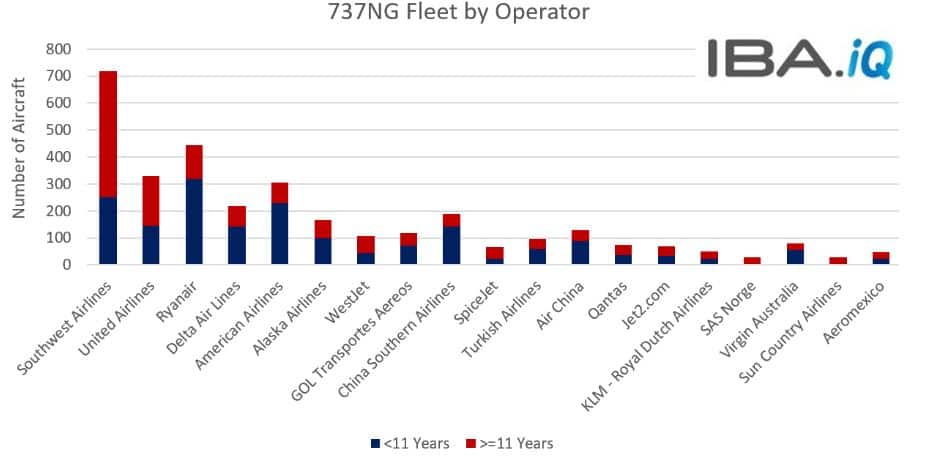IBA has said that it could cost up to $250,000 per aircraft to fix the pickle forks affecting Boeing 737NG variants -600, 700, 800, 900 and 900ER aircraft.
The pickle fork is a part that attaches the plane’s fuselage, or body, to the wing structure and manages forces.
Earlier this month, Boeing said that airlines had inspected 810 of the company’s 737 NG jets around the world and found 38 structural cracks requiring repair and replacement of the affected parts.
Officials have said that the planes will be grounded until the repairs are made with nearly 5% of inspections finding cracks in a pickle fork.
Southwest Airlines and Brazil’s Gol Linhas Aereas have grounded a total of 13 Boeing Co 737 NG airplanes.
The grounding comes after US regulators FAA ordered urgent inspections after the company notified the agency of structural cracks.
The cracking was found in the plane’s pickle forks, which attach the plane’s body to its wing structure.
It’s believed that Southwest has grounded two planes, while Gol said it had grounded 11. In a statement, Gol said it found “evidence of the need to replace a specific component, whose characteristics were not compliant with the standards set by the maker.”
The Brazilian airline said the fleet change would affect 3% of its passengers until 15 Dec. Gol has a fleet of 115 Boeing 737 planes, setting aside its grounded MAX planes, according to its website.
A spokesperson from IBA said: “Our technical team have estimated the cost of repair outside of a planned heavy check to be $25,000 per replacement kit and 1,800 labour hours for one side of the aircraft.
“If both sides need attention an additional premium will apply. With this level of cost, it’s possible that cost-sharing clauses could be triggered in some lease agreements, thresholds vary from $50,000 to $250,000, so airlines and lessors will be blowing the dust of the lease contracts to see if they will be impacted.”
With its iQ Fleet data, IBA suggests that the top 737NG operators are Southwest, United Airlines, Ryanair, American Airlines and Delta who top the bill.

“Operating the largest fleets,” the IBA report states. “These operators are therefore potentially more exposed now and in the future when inspections are needed, but of course only if cracks in the pickle forks are found.”
Aircraft will remain on the ground until either the work is done or depending on the age and value, they may be considered for other mid-life options.





